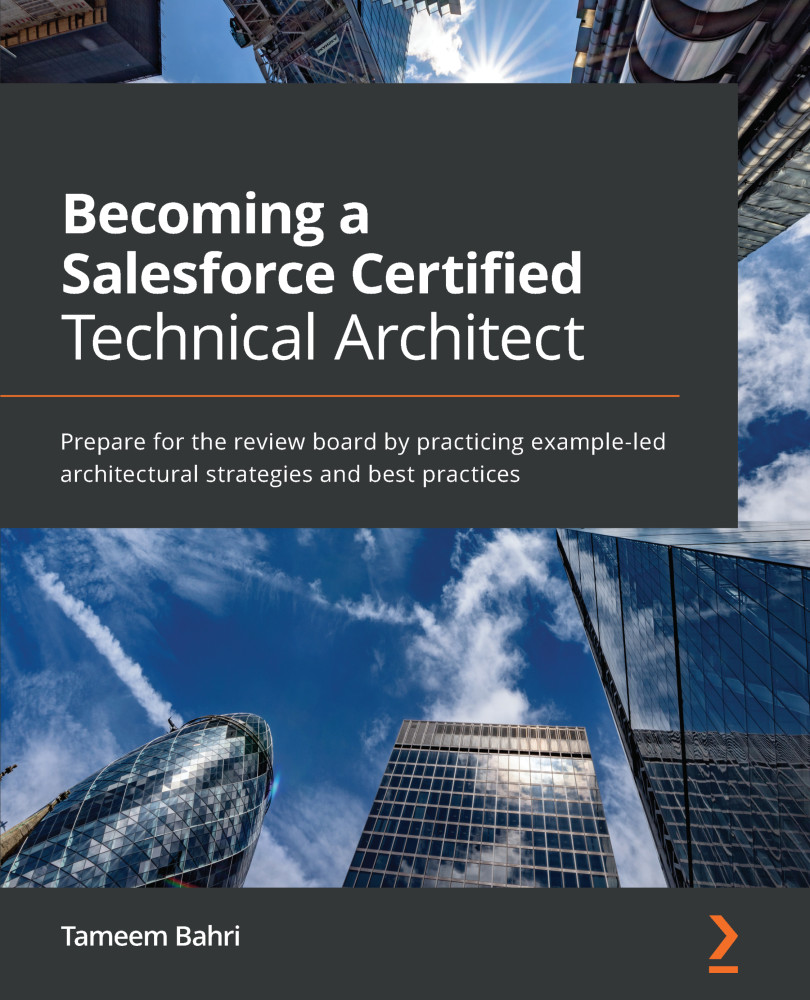Overview of this book
Salesforce Certified Technical Architect (CTA) is the ultimate certification to validate your knowledge and skills when it comes to designing and building high-performance technical solutions on the Salesforce platform. The CTA certificate is granted after successfully passing the CTA review board exam, which tests your platform expertise and soft skills for communicating your solutions and vision.
You’ll start with the core concepts that every architect should master, including data lifecycle, integration, and security, and build your aptitude for creating high-level technical solutions. Using real-world examples, you’ll explore essential topics such as selecting systems or components for your solutions, designing scalable and secure Salesforce architecture, and planning the development lifecycle and deployments. Finally, you'll work on two full mock scenarios that simulate the review board exam, helping you learn how to identify requirements, create a draft solution, and combine all the elements together to create an engaging story to present in front of the board or to a client in real life.
By the end of this Salesforce book, you’ll have gained the knowledge and skills required to pass the review board exam and implement architectural best practices and strategies in your day-to-day work.



 Free Chapter
Free Chapter

